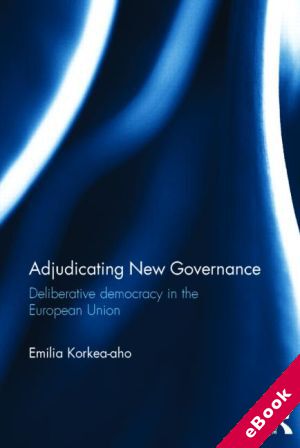
The device(s) you use to access the eBook content must be authorized with an Adobe ID before you download the product otherwise it will fail to register correctly.
For further information see https://www.wildy.com/ebook-formats
Once the order is confirmed an automated e-mail will be sent to you to allow you to download the eBook.
All eBooks are supplied firm sale and cannot be returned. If you believe there is a fault with your eBook then contact us on ebooks@wildy.com and we will help in resolving the issue. This does not affect your statutory rights.
This book engages and advances the current debate on new governance by providing a much-needed analysis of its relationship to law.
New modes of governance have produced a plethora of instruments and actors at various levels that present a challenge to more traditional forms of command and control regulation. In this respect, it is commonly maintained that new governance, and political experimentation more broadly, weaken the power of the courts: producing a legitimacy problem for new forms of governance, and, perhaps more fundamentally, for law itself.
Focusing on the European Union, this book offers a new account of the role of the courts in new governance. Connecting new governance with the conception of deliberative democracy, this book demonstrates how the role of courts has been transformed by the legal and political experimentation currently taking place in the European Union.
Drawing on a series of case studies, it is argued that, although deliberations in governance frameworks provide little by way of hard, binding law, these collaborative networks nevertheless condition judicial decision-making. With far-reaching implications for how we understand the justiciability of ‘soft law’, participation rights, the legitimacy of governance measures, and the role of courts in both the EU and internationally, this book argues that, far from undermining the power of the courts, governance regimes assist their functioning.
Its analysis will, therefore, be of considerable interest for lawyers, political scientists and anyone interested in the transformation of the judiciary in the era of new governance.